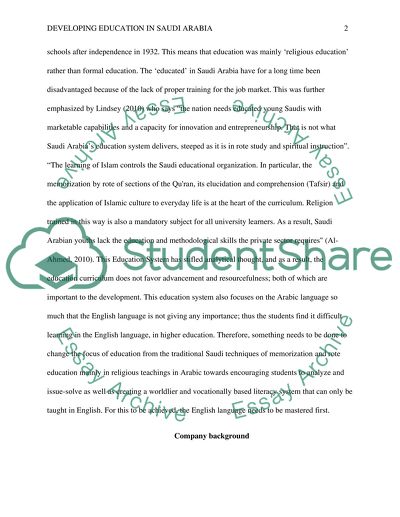Cite this document
(“Developing Education in Saudi Arabia Research Paper”, n.d.)
Developing Education in Saudi Arabia Research Paper. Retrieved from https://studentshare.org/education/1492029-developing-education-in-saudi-arabia
Developing Education in Saudi Arabia Research Paper. Retrieved from https://studentshare.org/education/1492029-developing-education-in-saudi-arabia
(Developing Education in Saudi Arabia Research Paper)
Developing Education in Saudi Arabia Research Paper. https://studentshare.org/education/1492029-developing-education-in-saudi-arabia.
Developing Education in Saudi Arabia Research Paper. https://studentshare.org/education/1492029-developing-education-in-saudi-arabia.
“Developing Education in Saudi Arabia Research Paper”, n.d. https://studentshare.org/education/1492029-developing-education-in-saudi-arabia.


